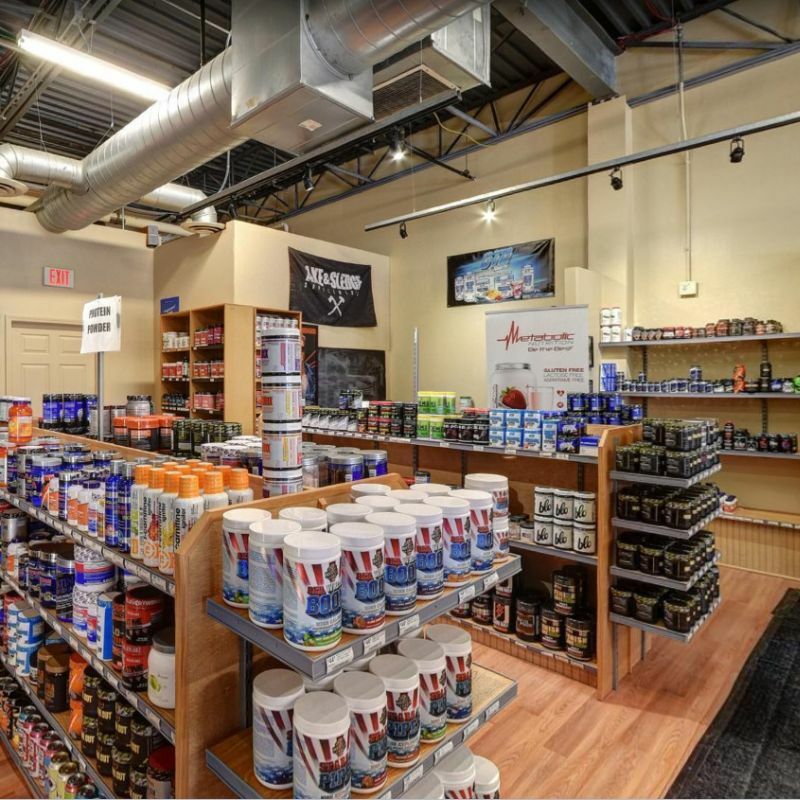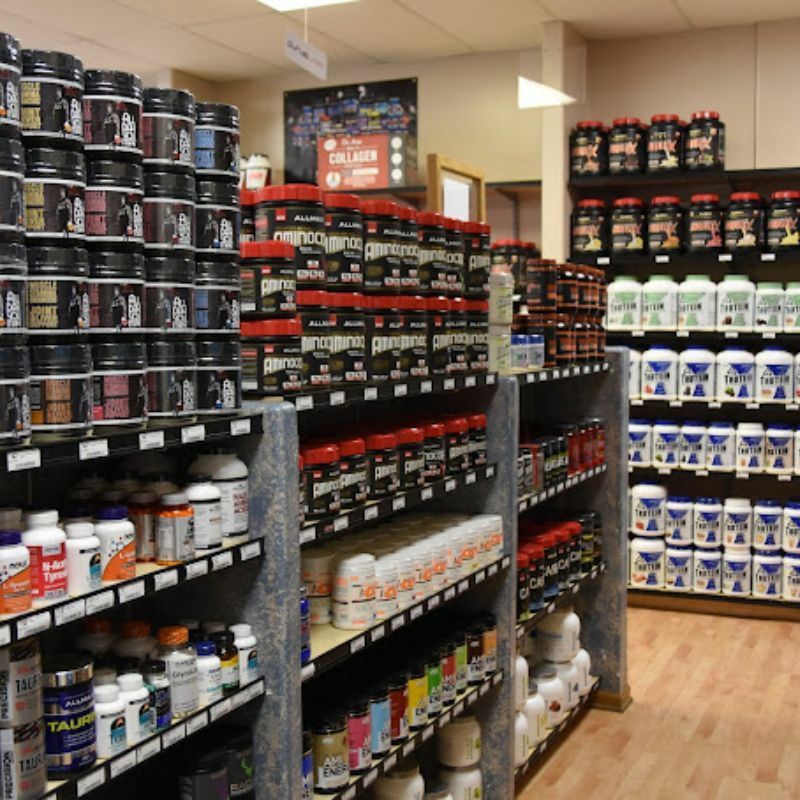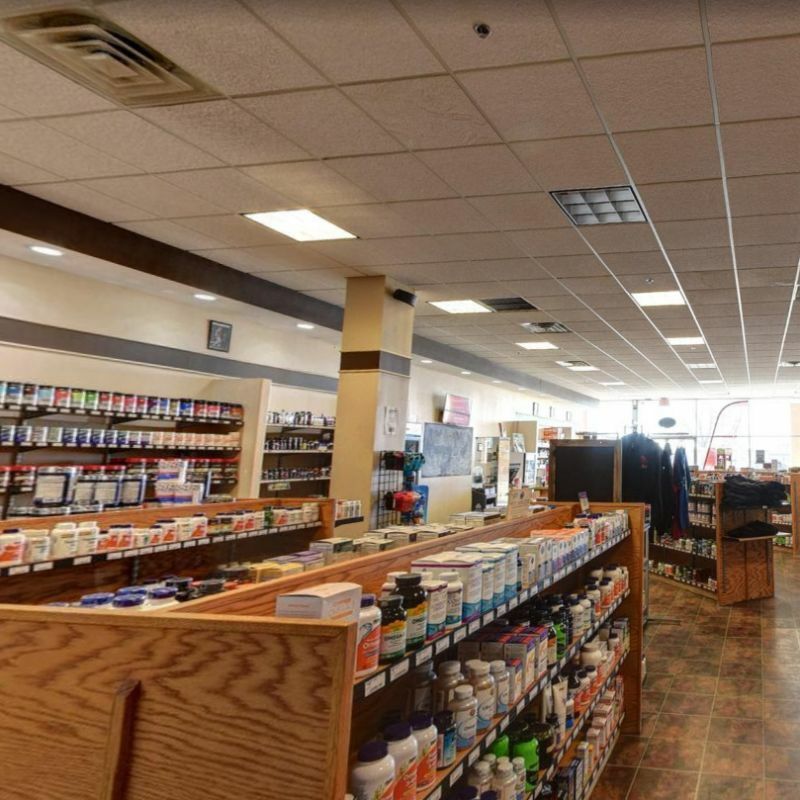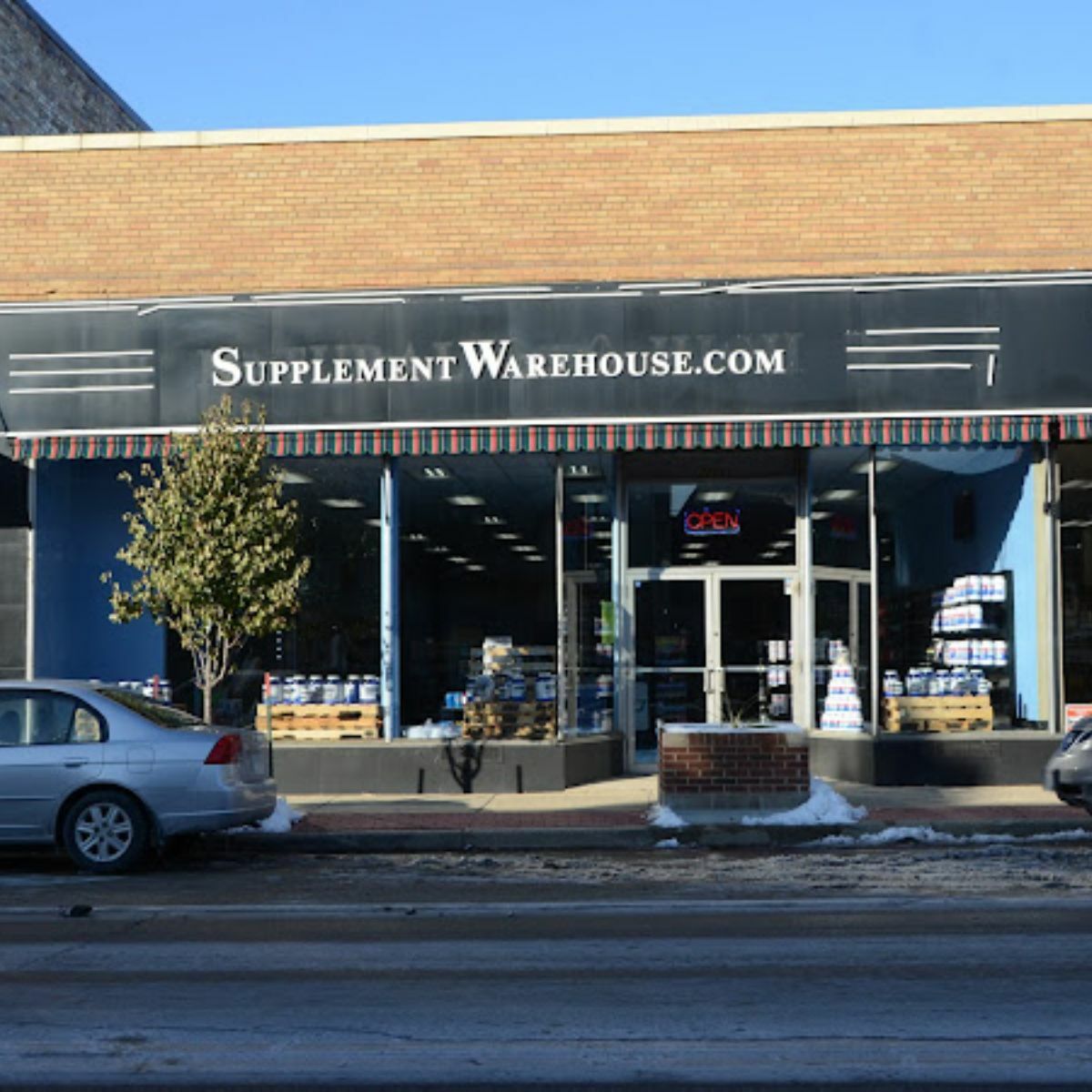California Prop 65 Update 2021 - Revisions to California's OEHHA Prop 65 Rules & Short Labels
Video Transcript
Brad:
All right. How's it going, guys? This is Brad and John with Best Price Nutrition. You can check out our website, bestpricenutrition.com. You can sign up for our email newsletter. You'll see when we have all of our deals going on, our flash sales, the newest products, blog posts. And I think next month we're doing a-deal-a-day. Really good deals. So make sure you sign up for that otherwise, you won't know about it. And these are 25% to 50% off deals, so they're really good.
John:
I don't think I saw a single deal under 25%.
Brad:
Yeah. Everything is really goodly, goodly?
John:
Priced well.
Brad:
And then we're also on social media; Instagram, Twitter, TikTok. That's the new one that we're doing. We're all over the place.
Brad:
So this is going to be a follow-up video to a video that we previously did about Prop 65. We just went over a little bit of what it was, essentially. You want to go over what Prop 65 is?
John:
I think one of our most interactive of videos of all time.
Brad:
Yeah.
John:
Hey Brad, if my mattress has a Prop 65 warning, should I be concerned?
Brad:
Yeah. I have an old knife that my grandma gave me and it has Prop 65. Should I be concerned?
John:
I get that you said I shouldn't be concerned, but if I eat potato chips, will I use my remote control with a Prop 65 warning, should I be concerned?
Brad:
First of, if you're asking some random people on the internet if you should be concerned, you're probably already concerned so why even ask us? Don't ask us for validation. If you don't want to use it, don't use it.
John:
So, Prop 65 warnings are these warnings out of California. It covers pretty-much every chemical under the sun and the criticism of it is, it's at such minuscule amounts that basically every single product in the store, even including food products, cosmetics, all have a Prop 65 warning. And when every single product has a warning, it takes away any meaning from that warning...
Brad:
100%.
John:
... to begin with.
Brad:
And that's why you get people asking you if they can use crazy, wild things, if it's okay. Stupid stuff. [inaudible 00:01:57] I'm not calling you guys stupid but someone said my graphics card has this warning. Should I be worried?
John:
Should I purchase an exercise bike with a warning? Should I buy a bag with the warning? [inaudible 00:02:10]? Some products make more sense, like an air fryer or something I'm cooking my food in.
Brad:
Yes.A 100%.
John:
Something I'm eating, putting on my skin. But some of these things were pretty out there.
Brad:
Someone said a pocket knife, a pocket knife dude. And at the end of last week, I thought we were pretty clear on where we stood on it and people seem to not have picked up at all, what we meant. It's like if you see a water bottle and it says, caution, you may drown in water, but that's what this is. It's such a minute amounts that has to be detected for it to be put on this list. Let's say the toxicity level of substance X is a 100 milligrams. You need to hit a 100 milligrams for it to even begin being an issue. If they detect 1.1 thousand of a milligram, that's going to be on the Prop 65. So you would have to then consume one million times whatever that product is or be in contact with it to a million degrees to hit that toxicity level.
John:
[inaudible 00:03:12] funny about this whole thing too. I know this gets people really concerned, but probably more legitimate concerns would be plastics in our food and water bottles.
Brad:
Yes, a 100%.
John:
Micro-plastics in our clothing that our bodies are absorbing, medicines and our drinking water.
Brad:
100%.
John:
Cell phones being connected to our heads. Like there's a thousand things that are higher up on my priority list to worry about than...
Brad:
Yeah.
John:
Prop 65.
Brad:
Doesn't it surprise you that it's one single state that makes you do all of these things. All of these other states understand that you can have sub-threshold amounts of things and it not be needed to be on a warning. In fact, what I saw was on the Prop 65 list, Aloe Vera...
John:
Really.
Brad:
Aloe Vera is on the list.
John:
You know it's kind of funny about country to country. I know in the Australia, UK parts of Europe, EMF radiation is considered a carcinogen, whereas here in the US we don't have that. So, if you were sleeping under an electric blanket and you're not concerned, but you're freaked out about the [crosstalk 00:04:18] Prop 65. Your priorities might be a little out of whack.
Brad:
Yes. I understand warnings are there for a reason but what these have turned into is: one, a way for companies to protect themselves for any lawsuit and two, a way for Goshen lawyers to try to Sue you if they don't see these on there. And that's a huge thing that people do. There are professional lawyers out there whose whole lives revolved around trying to Sue people for [inaudible 00:04:48] stuff like this. So if you're an up and coming supplement company and you put out a protein powder that doesn't have this warning label on there, but there's really nothing in there that can make you sick or even really cause cancer at. If you drink a 1000 tubs of protein, you're probably not being cancer. There are lawyers out there who are looking for companies that don't have that warning label on there to Sue, it's become this huge perverted thing. And it's not at all what it was initially sought out to do.
John:
Now with the changes to this lot, I know I've read a couple articles about this, and I know you're up to speed on this but we have some new rules regarding the short form labels, the size of the products they can go on. I know, depending on the contour and shape of your product, certain ones can get away with that. But one big change is that, I believe every product is going to have to actually list the chemical, which is actually going to be a really expensive undertaking for a lot of these companies.
Brad:
Yes. It's probably going to be a make or break or maybe not even sell the California.
John:
Well, the other thing I just cut out of California, that's the only state that...
Brad:
Yeah. So what you've probably seen, I forgotten exactly what it says is, but there's the Prop 65 warning I think it's a cut two or three sentences long. It says something like "under the whatever act in California we're required to let you know that this may have ingredients that cause cancer" that's called the short form label. There was originally a long form and a short form and the short form was created so that if you have a smaller products without that much room, let's say you have little bottle of liquid or pills and you can't fit the whole big label that was originally intended to be on products. That's what you could use the short form label for. But it turns out that everyone was using the short label because it's smaller, it's more attractive. I guess I'm having this huge, you're going to get cancer warning on your things.
John:
I mean, it's crazy that they say if your product label is smaller than five by five. I believe it is a five by five. [crosstalk 00:06:39]
Brad:
Yes, five square inches.
John:
It's probably most products out there, unless you want your whole product packaging to be taken up by a Prop 65 warning.
Brad:
Yeah. The total surface area of the product label available for consumer information is five square inches or less, which is really like that, five square inches.
Brad:
So, that's going to be like that. That's really not that big. So most products you're going to have to do with a full label on it, which you're saying, if it's say it's slightly above that, that is going to be your entire product, you're going to have to change the length or the size of your product to fit this label on there. And then the whole thing is, they're trying to avoid people going to the short form label every single time, to do it quick and easy. So now they have all these requirements. You could only do the short form label, if it's under these requirements, like the first one I said, under five square inches of less for information, the package shape or size can not accommodate the full length warning described, the entire warning is printed in a type size, no smaller than the largest type size used for other consumer information on the product.
Brad:
And in no case shovel warning appear and its type size smaller than six points type. As much as I don't like the Prop 65 warning for a lot of reasons, it's basically saying, if you're going to put the warning on there, you can't hide it somewhere? You have to make it be seen. And then finally, the short form warning contains the name of one or more chemicals known to cause cancer and or reproductive toxicity. And if you've been responded to, by either John or myself, what I've been telling people recently, cause we get comments every single day on this.
John:
By far the most comments on a video we've ever done
Brad:
I didn't see that coming at all, that was crazy. Every single day. And people will always say, "should I use this? Is this okay to take?" I don't know, we didn't sell you that product. I didn't sell you this coach bag. If you're genuinely concerned about it. What you need to do is find out what chemical is in that product. And then find the toxicity level of that chemical and see where it lays. Like I said earlier, if the toxicity threshold is 100 milligrams and the amounts of your product is one milligram, make your own decision. You're an adult. You could probably figure it out. You'd probably be okay.
John:
I think probably a good rule of thumb or at least how I feel about this. If it's something I'm going to ingest, put on my skin or that I'm constantly in contact with, I might investigate it, otherwise I'm probably not going to pay that much attention.
Brad:
Yes. And if you're a super worried about it, there was one guy who said something about, "I bought a protein and I was so upset when I saw a warning label", buddy, I got news for every protein has that label on there. Does that mean every protein is dangerous? No, not at all.
John:
Even if you want to seek out products without a Prop 65 warning. There's almost nothing out there.
Brad:
Yeah. So I messaged the dude, I said, you know what you should do budd, you should make your own supplement company. That abides by the Prop 65, that has zero of these chemicals in there, that has zero of these contaminants. And if you're able to do that, imagine the money you can make to sell to all the other people that come out in this video, you would find that niche market. But I guarantee you, you won't have it because it's almost going to be impossible to get weight protein that falls in line with that.
John:
Even the raw materials of everything are going to have chemicals in them.
Brad:
What do you think all this stuff comes from guys?. What do you think everything comes from? It comes from a place where you really can't do that good of a test on it. If you are concerned, look up the stuff in there and do your own judgment. Don't ask random people on the internet. If you're concerned about cancer, then actually do the research on it, right? I get all lit up about this. And like I said, this obviously came from a good place a long time ago but there's a lot of things that started out. It happens with a lot of things. A lot of government programs, sound good off the get go. It's not like, oh yeah, this is going to be for the best but over time they get perverted. And become things not at all what they were supposed to be.
John:
And this is what we call unintended consequences.
Brad:
Oh, 100%. My T booster pills have that warning even though everything in it is natural. Should I be worried? Aloe Vera is natural. You know? So you make that description or distinction. I bought some clothes off of fashion Nova and I haven't gotten it yet but some people are saying, there's a warning about it giving you cancer and causing reproductive problems. Why are you asking us if you should wear this?
John:
I think Fashion Nova is kind of very low quality cheap clothing.
Brad:
Yeah. "I got a toy with P65. Should I be concerned?" It blows my mind. And I swear these people must not watch the video. So I thought we were saying the same thing we're saying on this one, it's just there.
John:
Do we know when this new line goes into effect?
Brad:
This actually came out in February, but we haven't had a chance to do this video yet. Cause this was proposed.
John:
And a lot of the press about this was back in January, February.
Brad:
Yeah. This was proposed on January 8th.
Brad:
They're accepting public comments until March 8th. So they may be in effect. They may have passed it. This is something that they're thinking about doing that they're almost certainly going to do. I can't imagine that this one [inaudible 00:12:18] past, this is very on par with what it's going to be.
John:
It's going to be interesting too. We have a lot of newer up and coming supplement brands reaching out to us and some are well funded or have a celebrity behind it. A lot of these are just small time entrepreneurs launching a brand and I guarantee you, they're not going to want to go through the expense of having every ingredient and tech tested everything else. I wouldn't be surprised to either see brands deciding that to start up or at the very least not selling to California.
John:
If it's anything like UL testing or UL certification, potentially tens of thousands of dollars to your startup to be able to tell people that there's a minuscule amount of a chemical bed. It doesn't really matter.
Brad:
Yes. You either would know how you could get by because what if someone in California ends up getting one of your products? Is that on you? What if you choose to not sell to anyone in California? But you sell to someone in Nevada and they bring it to their buddy. Is that on you [crosstalk 00:13:16].
John:
Not for resale in the state of California.
Brad:
Actually. That's probably how you do it. Honestly, if I may find something in the company 110%, that's what I would do. Yeah. And in fact, you almost, can't do it.
Brad:
If you're going to sell online, you would have to make sure that anyone in that state, you can't ship it to, it might be just as hard to block people from California and than these warnings on there. Yeah. That's about all I got.
John:
[inaudible 00:13:42]
Brad:
It's an annoying thing. It's there for a good reason. But go ahead and keep asking us because I know you guys, no one's here. 100% of all. You're going to ask us if it's okay to take something. We're a supplement company, we know supplements, we know supplement ingredients. I don't know about your coach purse. I don't know about the pocket knife that she bought. And I know you're still going to ask if you should be concerned.
John:
It is great for the video engagement. So fire away.
Brad:
I know it's going to happen. So you know what? Just keep loading it up. I think that last one was our best video. So see what happens with this one? All right. Thanks guys.
John:
Later guys.
†The content of this blog post is intended solely for reference and entertainment purposes. We do not offer medical advice or specific guidance regarding the products discussed. Our insights are based on a combination of anecdotal experiences, online studies/reviews, manufacturer details, and customer feedback. While we strive to present accurate and current information, we cannot assure its completeness or its alignment with the most recent product formulations or data. For any concerns or up-to-date information, we recommend visiting the manufacturer's website directly. The opinions and information provided here do not necessarily reflect the views of Best Price Nutrition; they represent the perspectives and information from the manufacturers and users. Furthermore, these statements have not been evaluated by the Food and Drug Administration. The products mentioned are not intended to diagnose, treat, cure, or prevent any disease or illness.
Recent Posts
-
Can You Take Preworkout Before Sex?
Preworkouts are dietary supplements used to boost energy, focus, and endurance in an effort to impro
-
Ojibwa Tea: Detox Tea With a Rich History
Ojibwa Tea is an herbal tea with roots going back to Native American Traditions. Ojibwa Tea has expl
-
Black Friday & Cyber Monday Sale 2024
This Black Friday, Best Price Nutrition is excited to offer exceptional deals on a wide range of top







